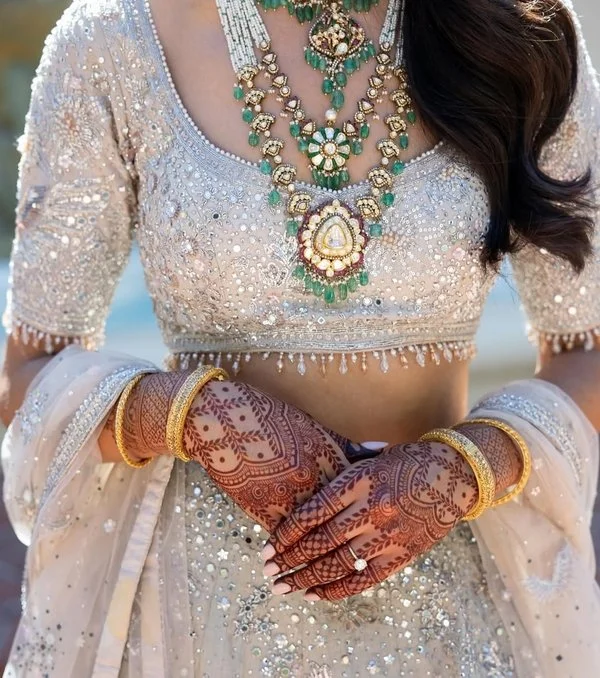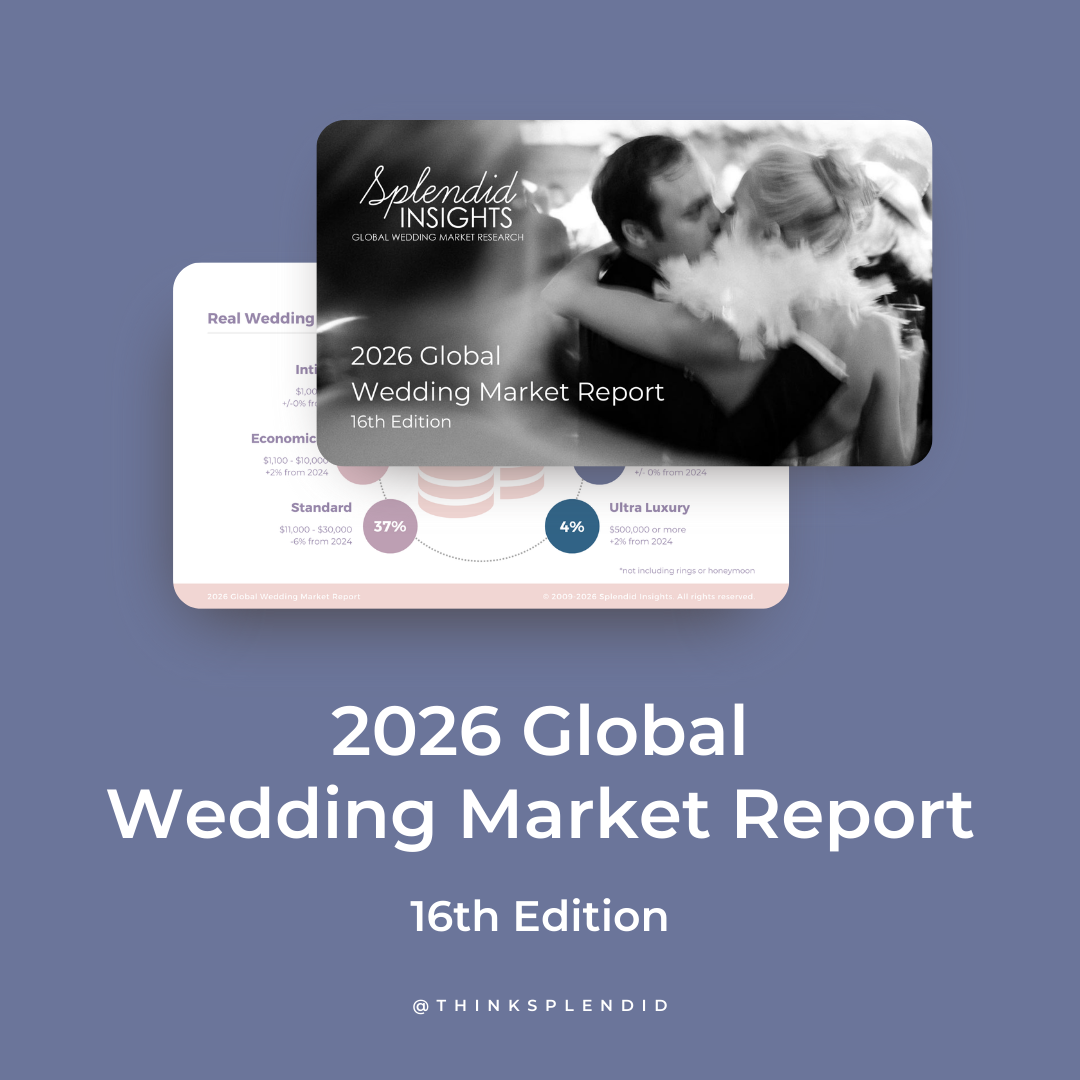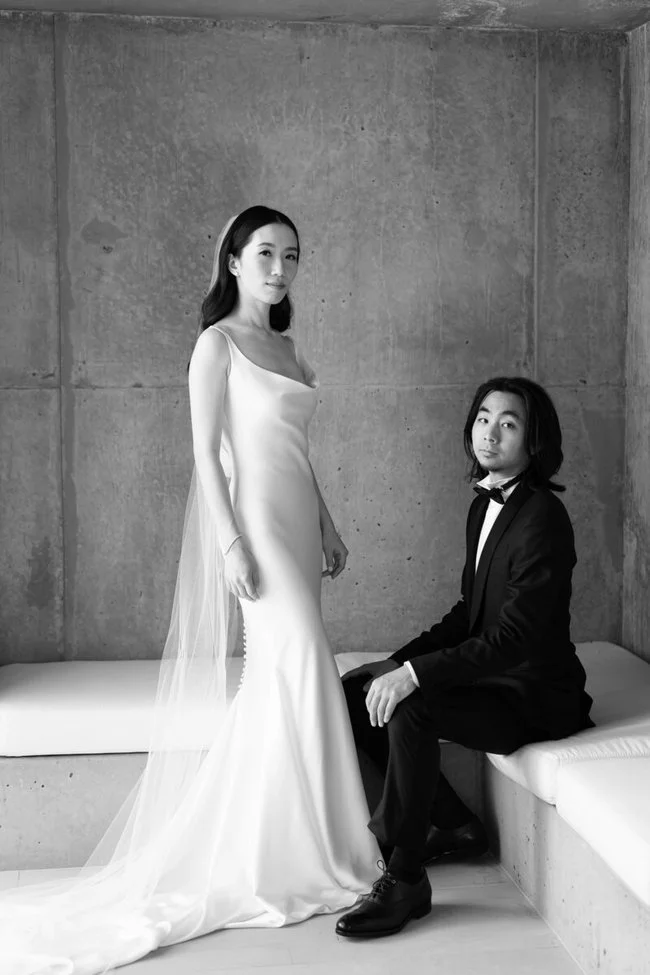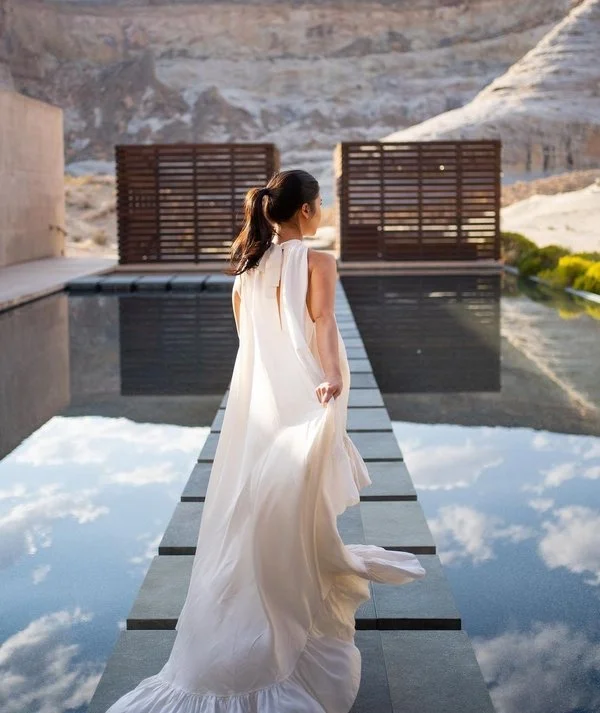Advice I’d give if I wasn’t scared of hurting your feelings.
Photo by Cameron Clark
Wedding Pro Q+A
This question is from a destination wedding photographer:
I'm a destination wedding photographer and I'm frustrated with how hard it is to get referrals from the top luxury wedding planners. They always seem to book the same photographers.
I know some of these photographers personally, and honestly? My work is just as strong. But somehow I'm always on the outside looking in. I've tried building relationships, sent holiday gifts, even had drinks with some of them at conferences, but when it comes to actual referrals, they go with their usual people.
What am I doing wrong? How do you actually become one of their "go-to" people instead of just someone they're polite to?
Answer from Liene:
You know that recent-yet-already-outdated TikTok trend, “Advice I’d give if I wasn’t scared of hurting your feelings”?
This answer is going to be a bit of that.
Since every planner has different criteria for how they select their vendor partners, there is no tried and true “secret” for getting hired. Instead, I’m going to focus on common things that actively prevent wedding pros from getting referred by luxury wedding planners.
Please know that everything I say below is done with a genuine desire to see you get out of your own way.
Enough with the DMs already
First and foremost, stop cold DMing eleventy billion wedding planners every day.
Yes, you should be cultivating new relationships and nurturing existing ones in a genuine manner. That’s a given.
But let’s be real: if you're consistently not getting hired again by the ideal planners you've already worked with, you need to sit down and have a serious “Come to Jesus” chat with yourself on why that is.
Here are seven questions you should be able to answer with an unequivocal “yes.”
If you can’t, you’ll know what to work on:
1. Are you a good hang?
This is important for any type of wedding, but for international destination weddings it is a much more critical factor than people like to admit.
Being a good hang isn’t about being an introvert vs extrovert. It’s about what it’s like to hang out with you.
Are you easy to get along with or are you a drag?
Are you easy to travel with?
Do you roll with the punches or do you complain non-stop?
Do you monopolize conversations?
Are you on time or are you consistently late and keeping others waiting?
How do you handle cultural differences and language barriers?
For destination weddings, you don't need to be besties with the other vendors, but you do need to be able to be around each other for multiple days at a time. After all, you’re not just seeing each other during the wedding events themselves, you’ll likely be hanging out in some form while off-duty as well.
Maya Angelou famously said, "I've learned that you can tell a lot about a person by how they handle three things: a rainy day, lost luggage, and tangled Christmas tree lights."
International projects are often where things go sideways fast and true personalities come to light.
This is something that can be hard to suss out through social media and is a major reason why in-person industry events like conferences and networking parties are important. They're not just about meeting potential vendor partners, they're also about observing how your industry colleagues interact in the real world and, more importantly, how well you click (or don’t) with them.
Sometimes, you may not click with someone's personality and that is perfectly okay. We all know people where we think: "You're a nice person but I can handle you for a 90 minute lunch, maximum." And we are all that person for someone else.
There are others we can spend a week with and not grow tired of and vice versa.
There’s another famous saying, “If you meet an A-hole in the morning, you met an A-hole. If you meet A-holes all day long, you’re the A-hole.”
If after hanging out with people you’re finding that no one wants to be around you for extended periods of time, then it’s probably you and not the rooms you’re in.
Being yourself doesn’t mean you never work on yourself. Which habits or patterns might you need to break and replace with new ones?
2. Can you be flexible and take direction?
By the time a wedding weekend rolls around, there were a million decisions made behind the scenes that were discussed ad nauseam. You just may not have been privy to them.
If someone on the planner's team tells you something needs to be done in a way that seems out of the norm, do not respond with, “I’m going to do it how I’ve always done it” or “We’ve never done it that way.” Trust that they've had multiple Zooms and emails to discuss how and why this specific thing needs to work in this specific way for this specific client at this specific event.
The planner’s responsibility is to the bigger picture and they do not have the time to break down all the reasoning that went into a decision – they just need you on board and willing to do your part to make everything go smoothly.
Of course, there are certain things about your process you should never compromise on, especially if doing so will impact your ability to deliver your end product at the level of quality you’re known for.
If you find yourself digging your heels in, be honest: Would the ask truly compromise the quality of your work? Or would it merely compromise your comfort zone? If it's the latter, get over it.
3. Are you a team player?
This one goes hand-in-hand with the first two.
Are you collaborative?
Do you want to see everyone shine?
Do you recognize that you are not the star of the show and act accordingly?
Do you do your part in a way that makes things easier for others?
Is your own team respectful of the larger vendor team?
These are all especially important for complex, multi-day installs and strikes.
It should go without saying that every vendor and their respective teams shouldn’t dip into the food in the catering hold area, that they shouldn’t leave candy wrappers, empty soda bottles, or cigarette butts strewn about, and that they shouldn’t count on the venue or planner’s staff to haul their garbage bags and boxes to the dumpster post-strike.
And yet it apparently needs to be said again and again and again.
Planners talk and the ones who are considering you will likely ask their friends about what your entire team is like to work with when it comes to production itself. Being supportive of the entire team and leaving every place better than you found it will go a long way in getting you referred.
4. Are you discreet?
For weddings that come with NDAs, discretion is paramount.
We all know wedding pros who act brand new when they’re around someone famous or are all too happy to break an NDA or confidentiality agreement the second they sign it.
Do you get so starstruck that you sneak selfies with celebs in the background while you're sitting in First Class next to Vanna White?
Do you leak info "anonymously" to TMZ, Deux Moi, or even just wedding industry Instagram accounts? If so, you should know it's pretty easy to figure out who you are and which wedding an anonymous IG story is about. I've had multiple ultra-luxury planners tell me they automatically blacklist any vendor who submits any type of info on NDA weddings, whether they’ve worked with them yet or not.
High profile wedding clients tend to have high profile wedding guests. Planners want to ensure you're not just going to keep your cool around these people but that you are someone they are "safe" to be around. That you won't share snippets of conversations you overheard, or which guest was doing a line in the bathroom, or who was making out in the hallway of the reception with someone who was definitely not their spouse.
If you can't be trusted to keep it cute and keep your mouth shut, you won't be referred.
5. Are you genuinely inclusive?
I'm not a planner, but in my role as a wedding business consultant I am in charge of the preferred vendor lists for several of my luxury hotel and venue clients.
Do you have a history of being racist, anti-Semitic, Islamophobic, homophobic, transphobic, etc? This can manifest in all sorts of ways, from making hateful comments to withholding opportunities.
If so, you're not going on the list.
Your clients may be straight, but their sister who is their maid of honor may be trans. If you can't be trusted to treat every person with genuine respect – including not engaging in micro aggressions – you're not getting referred.
This isn't just about being a decent human being, it's also about liability and risk assessment. I'm not willing to knowingly expose one of my clients to a potential discrimination lawsuit simply because a vendor's work is pretty. "You are the company you keep" doesn't just apply to you as a person, it also applies to your brand.
6. Do you keep your hands to yourself?
81% of women and 43% of men have been sexually harassed, with 38% of women experiencing this harassment in the workplace.
In the wedding industry, the number of women sexually harassed at work is 67%. This includes harassment by colleagues, wedding clients, and wedding guests.
No planner wants to hire a wedding pro they can’t trust to behave appropriately around their clients, the guests, and the rest of the larger vendor team.
Maybe you’re good at keeping your hands to yourself on the wedding day, but remember, the industry conferences and networking events are where planners are observing whether or not you’re someone they can trust. Your behavior there counts, too.
7. Do you dress appropriately?
One of the factors that keeps vendors from being referred by high-end planners is how they choose to dress for a wedding.
You can argue on Threads all you want that this is unfair, that clothing choices are superficial and shouldn’t matter – and you are entitled to your opinion.
You also will not get the luxury weddings you want if you refuse to dress appropriately according to how the planner defines the dress code for that event.
Appropriate wardrobe will differ according to things like:
A culture or subculture’s standards of modesty
Cultural or religious traditions
An event’s level of formality
The setting of an event
“Stagehand black” exists because the stagehands need to blend into the dark background around the stage without the theater audience seeing them.
While this practice has been widely adopted by the wedding industry, it is not an appropriate dress code for every wedding. In some instances, wearing all black will make you stick out like a sore thumb.
Your black jeans and black polo at a black-tie wedding is inappropriate.
So is your messy top-knot, nametag, or branded t-shirt during a wedding with a “Sunday best” dress code (install and strike usually have different dress codes where you can be more casual).
Your full black suit at an elegantly laid back beach barbecue welcome party is also out of place.
Once you get to the luxury level, it’s a good idea to build a wardrobe stipend into your pricing for you and your team members. Aside from a branded t-shirt or hat, the clothes you wear to an event never count as a tax write-off, so make sure you’re budgeting appropriately up front.
The saying “if you want to sell luxury, you have to look luxury” is a myth. You do not need to spend a zillion dollars on designer labels if you do not want to. You do however, need to wear clothes that fit you, are clean and pressed, and are appropriate for the context of the occasion.
What about the quality of my work?
You’ll notice none of these questions have to do with the quality of your work. That’s because at the luxury level, it’s a given that your work has to be good in order for you to be referred.
If your work isn’t as solid as you might have thought, obviously start there.
While there are always a few mediocre wedding pros who slip in, it’s usually because they are nailing these seven areas.
In the wedding industry, soft skills are just as important as the hard skills your craft requires and the talent you bring to the table.
Ask Liene
Have a question on running a wedding company?
From sticky client issues to navigating the challenges that come with success, Liene weighs in with her trademark compassionate yet no-nonsense advice.
To submit a question for our Wedding Pro Q+A series, send us an email. We’ll keep you anonymous.
Written by
LIENE STEVENS
Liene Stevens, the founder and CEO of Think Splendid, is an author, speaker, award-winning luxury business strategist and behavioral psychologist.
* * *
Founded in 2005 and trusted by clients in 97 countries, Think Splendid is the global leader in wedding business consulting.
We provide strategic guidance to industry leaders, luxury brands, hotels, and tourism destinations that serve high net worth and ultra-high net worth brides, grooms, and wedding guests.

























